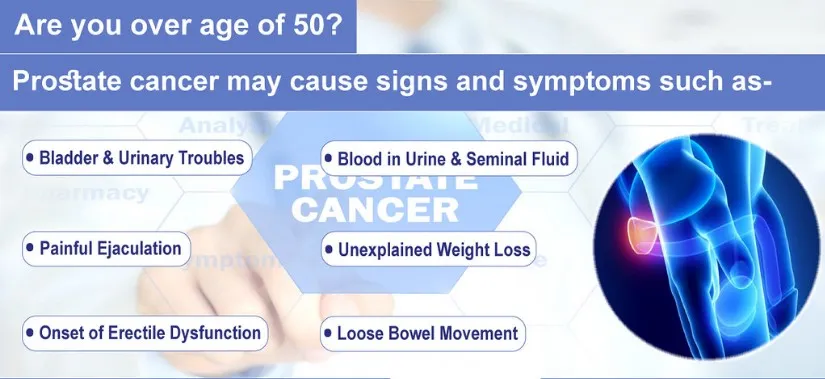Prostate cancer is a cancer type that affects the prostate gland a walnut-sized gland found in men that produces seminal fluid. While the causes of this cancer are not fully understood early detection and treatment can greatly improve the chances of survival. Choosing the right treatment option for prostate cancer can be challenging. With a wide range of treatment options available knowing which one is best for you can be complex. This article will explore some factors that can help how to choose the best treatment option for prostate cancer.
The Prostate Cancer
Before discussing the options for treating prostate cancer it’s important to understand what prostate cancer is and how it develops. This cancer occurs when cells in the prostate gland start to grow and divide uncontrollably leading to the formation of a tumour. This tumour can then spread to other parts of the body such as the bones and lymph nodes.
Treatment Options for Prostate Cancer
There are several treatment options:
- Active Surveillance: This approach involves monitoring cancer closely with regular checkups and tests. If cancer starts to grow or spread treatment may be recommended.
- Surgery: Surgery involves removing the prostate gland and any cancerous tissue. This is typically done using a procedure called a radical prostatectomy.
- Radiation Therapy: Radiation therapy involves using high-energy rays to kill cancer cells. This can be done externally or internally using radioactive seeds.
- Hormone Therapy: Hormone therapy involves blocking the hormones that fuel the growth of prostate cancer cells.
- Chemotherapy: Chemotherapy involves using drugs to kill cancer cells. This is typically used when cancer has spread beyond the prostate gland.
Factors to Consider When Choosing a Treatment Option
Choosing the right treatment option for prostate cancer can be challenging. Here are some crucial factors to consider when making your decision:
- Age and Health: Your age and overall health can play a role in determining the best treatment option for you. For example, older men with other health issues may be better suited for active surveillance or radiation therapy while younger healthier men may be good candidates for surgery.
- Stage of Cancer: The stage of your cancer or how far it has spread can also influence your treatment options. For example, if the cancer is still confined to the prostate gland, surgery or radiation therapy may be effective. However, if cancer has spread to other parts of the body more aggressive treatments like chemotherapy may be necessary.
- Side Effects: Different treatments can have different side effects. For example, surgery can cause erectile dysfunction and incontinence while radiation therapy can cause bowel and bladder problems. It’s important to discuss the potential side effects of each treatment option with your doctor.
- Personal Preferences: Ultimately the decision about which treatment option to choose is up to you. Some men may prefer a less invasive approach like active surveillance while others may want to pursue more aggressive treatments like surgery or chemotherapy. It’s crucial to consider your personal preferences and goals when making your decision.
- Prognosis: Finally the prognosis or the expected outcome of your cancer can also play a role in your decision. If your cancer is slow-growing and not expected to spread active surveillance may be a good option. However, if your cancer is aggressive and likely to spread more aggressive treatments may be necessary.
Conclusion
Prostate cancer is a serious and complex disease but with early detection and treatment it can often be managed effectively. Choosing the right treatment option requires careful consideration of a range of factors. By working closely with your healthcare team and taking steps to manage side effects and maintain your overall health you can improve your chances of a successful outcome. Remember to take the time to gather information and ask questions so that you can make an informed decision about your treatment options.

